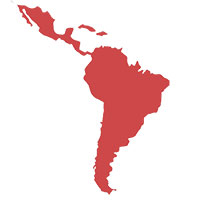Half of the world’s population—approximately 3.5 billion people, a number that is only increasing as coastal populations grow expeditiously—depend on the ocean as their primary source of food.
In addition to other market-based values, such as offshore natural resources, the ocean provides a plethora of non-market values, from biodiversity to recreation or just breathtaking beauty. Occupying more than 71 per cent of the planet’s surface, crossing both political and cultural boundaries, and regulated by complex multi-scalar systems, the one ocean—a term used to describe the connectivity of all five oceans—continues to perplex negotiators.
Ocean acidification is a compelling reason to reduce carbon dioxide emissions as soon as possible though.
Beyond climate change and ocean acidification, major threats to ocean health include: unsustainable fishing, inadequate (legal) protection, destructive development, shipping, oil extraction, and pollution. The ocean absorb close to a third of our carbon emissions, with the rest being either sequestered up by forests or remaining in the atmosphere. Excess carbon dioxide molecules combine with sea water to form carbonic acid, which breaks up hydrogen ions and reduces the pH of seawater, making it more acidic.
If you enjoy eating fresh shellfish, a more acidic ocean could spell disaster for your next oyster cookout. Acidification interferes with the uptake of calcium carbonate by shelled ocean organisms such as oysters, scallops, abalone, and even the plankton that make up the base of the entire ocean food web. For example, the pteropod, or sea butterfly, absorbs calcium carbonate to grow its shell. If this process is disrupted, the shells break more easily and populations collapse as a result. The impacts of acidification are multiplied by increased water temperatures, another consequence of climate change.
At the most recent UN climate change negotiations, Laura Ramajo, a Chilean researcher, presented her findings of a seven-year project of one of their most important marine resources: el loco, a species of large edible sea snail. The species is hyper-sensitive to acidification, and significant decreases in mass and size, related to a 30 per cent increase in ocean acidity, have already been measured. With more than 10,000 people employed, many of whom rely solely on the fishery for their livelihoods, high snail mortality events can devastate human communities.
US Secretary of State John Kerry once said of acidification that “while it is localised, it is affecting the ocean everywhere.” The impacts of ocean acidification are mainly felt at the local scale, as with the loco fisherman of Chile, however it’s altering the ocean at all scales. International coordination of the threat is already in place and global observing networks are continuing to expand to the most vulnerable areas of the ocean. In order to limit the impacts, more measures must be taken. These fall into three categories: political/legal support, capacity building, and direct action.
Ocean advocates have called on negotiators to include ocean health within any agreement that comes out of Paris. By legally recognising the importance of the ocean, to humans and the economy, there would be more of an obligation for countries to act on climate change.
Including capacity building within a guiding document would be equally as important. Scientists have asked for more resources to continue their research monitoring and evaluating the health of the ocean, this could take the form of training to preparing place-based adaptation plans. Identifying acidification-resistant corals would also be valuable for adapting to climate change.
Reductions in emissions is seen as the most effective way to improve ocean health.
In the immediate time, other threats to oceans can be dealt with through increased protection. Decisions made in the lead up to, and during, the Paris negotiations, are essential for ensuring a healthy, biodiverse ocean and protecting the livelihoods of hundreds of millions of individuals around the world.













comment